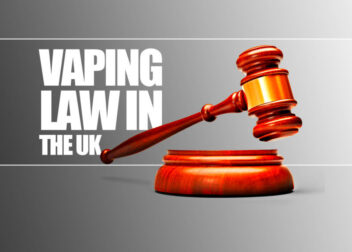Compliance with Vaping Sales Laws in Arkansas
The rise of vaping has brought about a demand for legal regulations. In Arkansas there are specific rules in place to oversee the sale of vaping products. These regulations are intended to address both public health issues and the needs of businesses. Whether you’re a newcomer to vaping or a store owner looking to stay compliant it’s essential to grasp these laws. Let’s explore the key points you should be aware of.
Requirements for Retailers Selling Vaping Products
In order to sell vaping products legally retailers in Arkansas need to follow certain rules. Here are the main requirements.
- Business License: Ensure you have a valid business license for retail operations. This is a basic requirement for operating any business, including those selling vaping products.
- Special Vaping Permit: Obtain a specific permit for selling vaping products. This permit is issued by the Arkansas Department of Finance and Administration (DFA).
- Product Safety Standards: All products must meet the state’s safety standards. This includes proper labeling and quality assurance.
- Record Keeping: Maintain detailed records of all transactions involving vaping products. This includes sales receipts and inventory logs.
Based on my own experiences I’ve discovered that dealing with these demands can be quite challenging. However keeping yourself updated and orderly can assist in steering clear of potential legal issues and ensuring everything runs smoothly.
Age Restrictions and Proof of Identification
A key aspect of Arkansas vaping regulations is the strict enforcement of age limits. To safeguard against access to vaping products by minors, sellers are required to follow these rules
- Minimum Age: Vaping products can only be sold to individuals who are 21 years or older. This aligns with federal regulations aimed at reducing youth access to such products.
- Proof of Age: Retailers must ask for valid photo identification to verify the buyer’s age. Acceptable forms of ID include a driver’s license, state ID, or passport.
- Compliance Checks: Periodic compliance checks are conducted by local authorities. Failure to adhere to age restrictions can result in fines or revocation of your permit.
Looking back on my experiences with these rules I remember an incident where a young person attempted to buy vaping products at a store I often visit. The employees attention to detail in verifying identifications helped avoid a potential legal problem and highlighted the significance of having age verification measures in place.
Taxation and Licensing Requirements
If you want to sell vaping products in Arkansas it’s crucial to know the rules about taxes and licenses to avoid any legal issues. While dealing with these regulations may seem overwhelming at first having a solid understanding of the fundamentals makes it easier to handle.
Here’s a brief summary of the key points you should be aware of.
- State Tax: Vaping products are subject to state taxes, which can vary. Retailers must ensure they are calculating and collecting the correct amount of tax from customers. It’s wise to consult with a tax advisor to get this right.
- Sales Tax Permit: Besides the specific vaping permit, you’ll need a sales tax permit from the Arkansas Department of Finance and Administration. This is required for collecting sales tax on your transactions.
- Local Licensing: Depending on your location within Arkansas, additional local licenses or permits might be required. Always check with your local government for any extra requirements.
- Annual Renewal: Both the vaping permit and sales tax permit need to be renewed annually. Staying on top of these renewals will help you avoid any interruptions in your business operations.
Thinking back on my experiences I’ve noticed that keeping track of things and renewing permits on time can really help avoid a lot of trouble. A minor error or a hold up can result in penalties so staying organized is crucial.
Advertising and Marketing Regulations
Promoting vaping products involves following specific guidelines to avoid spreading false information and safeguard public health. For retailers looking to market their offerings responsibly grasping these rules is crucial.
Here’s what you should be aware of:
- No Targeting Minors: Advertising must not target or appeal to minors. This means avoiding imagery or messages that could attract younger audiences.
- Truthful Claims: All advertising must be truthful and not make misleading claims about the safety or benefits of vaping products. Ensure your ads reflect the true nature of the products you’re selling.
- Display Restrictions: There are restrictions on where and how vaping products can be advertised. For instance, certain locations like schools and near playgrounds are off-limits for ads.
- Social Media Guidelines: If you use social media to promote your products, be mindful of the platform’s specific guidelines and local regulations regarding content and audience targeting.
There was an incident in the past where a neighborhood store ran into trouble due to their overly eye catching and attractive advertisements targeting a younger audience. This served as a valuable lesson highlighting the significance of following advertising guidelines.
Penalties for Non-Compliance
Disregarding the rules regarding vaping sales can result in serious repercussions. The punishments for not adhering to the regulations aim to discourage misconduct and ensure that companies comply with the law.
Here’s what to keep in mind:
- Fines: Non-compliance can result in hefty fines. The amount varies depending on the nature and severity of the violation. It’s always better to avoid these fines by adhering to all regulations.
- License Suspension: Serious violations may lead to the suspension or revocation of your vaping permit. This can severely impact your business operations and reputation.
- Legal Action: In extreme cases, legal action might be taken against your business. This could involve court proceedings and further financial repercussions.
- Public Record: Violations can become part of the public record, affecting your business’s reputation. It’s crucial to maintain compliance to avoid any negative publicity.
Based on what I’ve witnessed businesses have encountered obstacles because they didn’t adhere to regulations. This highlights the crucial need to stay up to date and strictly comply with the law.
Recent Changes and Updates to the Law
The landscape of vaping rules is constantly changing, adapting to fresh challenges and trends. Staying informed about the latest legal developments is essential for anyone working in the vaping sector. Arkansas has made updates to its vaping regulations lately and being aware of these changes is key to ensuring compliance.
Here’s a summary of the recent updates:
- Increased Minimum Age: The minimum age for purchasing vaping products has been raised from 18 to 21 years, aligning with federal regulations. This change aims to reduce youth access to these products.
- Stricter Advertising Rules: New rules have been introduced to limit advertising, especially targeting young audiences. This includes tighter restrictions on where and how vaping products can be marketed.
- Enhanced Reporting Requirements: Retailers now need to provide more detailed reports on their sales and inventory to ensure compliance with state regulations.
- Taxation Adjustments: There have been adjustments in the taxation rates for vaping products, reflecting the state’s efforts to regulate and control the market more effectively.
Looking back on these changes, I remember a business owner who was taken aback by the new age limit. It was a harsh reminder to keep abreast of regulatory updates. Keeping an eye on official sources for news can help you avoid such unexpected situations.
Resources for Further Information
In the intricate landscape of vaping rules and laws having trustworthy sources of information is crucial. Whether you’re a shop owner a vaper or simply curious about the subject these resources offer comprehensive and current insights.
Here are some key resources to consider:
- Arkansas Department of Finance and Administration: Visit their website for official guidelines, permit applications, and tax information. They provide comprehensive details on compliance.
- Local Government Offices: For specific local regulations and permits, contact your local government office. They can provide information tailored to your area.
- Industry Associations: Organizations such as the American Vaping Association often have resources and updates about industry standards and changes in laws.
- Legal Advisors: Consulting with legal experts who specialize in tobacco and vaping laws can provide personalized advice and ensure you’re fully compliant.
I’ve discovered that having a trustworthy mentor and keeping in touch with industry organizations can be beneficial when dealing with regulatory challenges. A small business I’m familiar with reaped the rewards of becoming a member of a community industry association gaining valuable insights and guidance.
FAQs
Q: What are the consequences for selling vaping products to minors?
Selling vaping products to people under 21 can lead to hefty penalties, a temporary halt in your permit or even losing your license entirely. Adhering to age restrictions is taken very seriously.
Q: How often do I need to renew my vaping sales permit?
In Arkansas vaping sales permits have to be renewed every year. Its important to keep track of the renewal dates and submit your application promptly to prevent any interruptions in your permit status.
Q: Can I advertise vaping products on social media?
Absolutely, but there are some limitations. Your ads need to follow the laws of the state such as not aiming at minors and steering clear of deceptive statements. It’s also important to check the advertising guidelines of the particular platform you plan to use.
Q: Where can I find updates on vaping regulations?
You can check for updates on the Arkansas Department of Finance and Administrations website at local government offices and through industry associations. Keeping in touch with these channels will ensure you stay up to date.
These frequently asked questions are here to tackle worries but feel free to reach out for more guidance if necessary. When it comes to staying compliant and managing a thriving business having precise and transparent information can truly be a game changer.
Conclusion
In conclusion of our examination of vaping sales regulations in Arkansas it’s evident that adhering to the rules goes beyond mere formalities—it’s about being well informed and proactive. While the regulatory framework may be intricate grasping the nuances of taxation, licensing and advertising can prove advantageous for both businesses and consumers. Speaking from experience staying updated on legal developments and maintaining meticulous records can help you avoid unexpected challenges and penalties. View these regulations not as restrictions but as principles that promote a fair and responsible marketplace. By remaining vigilant and thorough you not only ensure your business stays on course but also contribute to an industry that is safer and more transparent for all stakeholders involved.


